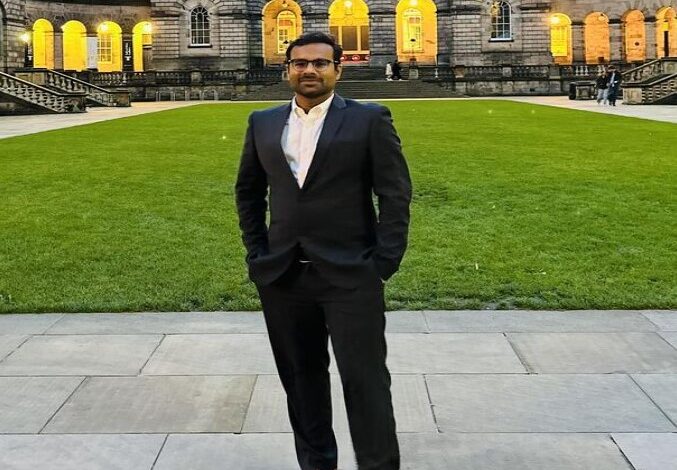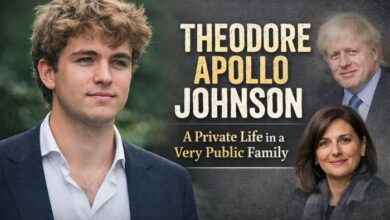Arun Kumar: Historian, Educator, and Social Reformer

Arun Kumar is a distinguished historian and academic whose work bridges the worlds of research, education, and community development. Currently serving as an Assistant Professor of Modern British Imperial, Colonial, and Post-Colonial History at the University of Nottingham, he has gained recognition for his groundbreaking research on South Asian history, labour movements, caste, and educational aspirations. Beyond academia, Arun Kumar has also made significant contributions to rural development by establishing a public library in his home village in India. This article explores his journey, academic achievements, research contributions, teaching philosophy, and social initiatives that make him a unique figure in contemporary scholarship.
Early Life and Education
Childhood and Background
Arun Kumar was born in Uttar Pradesh, India, where his formative years shaped his interest in history, literature, and social issues. Growing up in a village where access to books and libraries was limited, he experienced firsthand the challenges of “book poverty.” This early exposure to educational inequality left a lasting impression on him and later inspired his efforts to build community-based learning initiatives.
Academic Pathway
-
Undergraduate Studies: Kumar pursued his Bachelor of Arts in History at Delhi College of Arts & Commerce, Delhi University.
-
Postgraduate Studies: He went on to earn a Master’s degree in History from St. Stephen’s College, one of India’s most prestigious institutions.
-
Doctoral Research: His academic journey took him to Germany, where he completed his PhD in South Asian History at Göttingen University between 2013 and 2017. His dissertation earned the Outstanding Dissertation Prize from the German Historical Institute in London in 2018, highlighting the depth and originality of his research.
Academic Career
University of Nottingham Appointment
In September 2019, Arun Kumar joined the University of Nottingham as an Assistant Professor. Since then, he has played an active role in shaping the department’s teaching and research profile in modern South Asian and global history.
Areas of Specialization
Arun Kumar’s work covers a wide spectrum of historical themes:
-
Labour and working-class history of South Asia
-
Caste and social inequality
-
History of capitalism and globalization
-
Workers’ education and aspirations
-
Social and cultural practices such as letter-writing and the use of time
Research Contributions
Labour History and Social Change
Arun Kumar’s research has shed light on the often-overlooked narratives of labouring communities in colonial India. By examining workers’ educational dreams, struggles, and aspirations, his work goes beyond economic data to reveal the human side of labour history.
Publications and Articles
Some of his notable academic works include:
-
Letters of the Labouring Poor: Letter Writing in Colonial India
-
The ‘Untouchable School’: American Missionaries and Educational Dreams of Labouring Dalits in Colonial North India
-
Skilling and its Histories: Skilled Workers in Colonial India, 1880–1910
-
Labour in Your Cup: Global Histories of Labour in the Tea Industry
Through these studies, Kumar demonstrates how ordinary people engaged with ideas of education, dignity, and upward mobility.
Public Writing
Beyond academic journals, Arun Kumar has written for leading newspapers and magazines in both India and abroad. His ability to communicate complex historical ideas to a wider audience sets him apart as a historian committed to public engagement.
Teaching and Mentorship
Undergraduate Courses
At the University of Nottingham, he teaches courses such as:
-
Rule and Resistance in Colonial India
-
Global Histories of Labour and Capitalism
-
Slavery, Caste, and Capitalism: Labouring Lives in Global History
Postgraduate Guidance
At the postgraduate level, he contributes to modules on comparative and global history. His teaching emphasizes critical thinking, diverse perspectives, and the role of marginalized voices in shaping history.
Philosophy of Teaching
Arun Kumar believes that history should not only narrate events but also question power structures, inequalities, and social hierarchies. His teaching style encourages students to analyze history from the perspective of ordinary people rather than elites.
Community Engagement and Social Reform
Founding of the Rural Development Library
One of Arun Kumar’s most impactful initiatives is the creation of the Rural Development Library in his ancestral village, Kalyanpur, in Uttar Pradesh. This project was born from his personal experiences of limited access to books during childhood and his academic research on workers’ educational desires.
The library now serves thousands of residents, providing books in Hindi and English on diverse subjects, including science, mathematics, history, and literature. It also offers resources for competitive examinations, children’s education, and cultural enrichment.
Accessibility and Inclusivity
The Rural Development Library operates on the principle of free access. Books can be borrowed without fear of fines for late returns, ensuring inclusivity for all. The library has also been a community hub for debates, talks, and cultural activities, fostering a love for learning in an otherwise resource-poor environment.
Role in the Digital Age
Arun Kumar sees libraries as vital institutions in combating misinformation and digital overload. His vision is to create spaces that encourage critical reading and community dialogue, especially in rural areas where educational resources are scarce.
Awards and Recognition
Arun Kumar’s scholarly excellence and community work have earned him both academic and social recognition. His dissertation award in 2018 highlighted his contribution to historical research, while his library initiative has been celebrated in academic and media circles as a model of social responsibility by scholars.
Global Impact and Relevance
Bridging Academia and Society
Arun Kumar is part of a growing group of scholars who seek to make history relevant beyond the classroom. His dual role as a researcher and social reformer demonstrates how academic knowledge can inspire real-world change.
Inspiring Future Generations
Through his teaching, publications, and community projects, Arun Kumar inspires students, scholars, and young readers to think critically about history and its relevance to present-day struggles for equality and education.
Conclusion
Arun Kumar’s journey from a small village in India to the lecture halls of a leading British university is a story of resilience, intellectual passion, and social commitment. As a historian, he has deepened our understanding of South Asia’s labouring classes and their educational aspirations. As a teacher, he inspires students to look at history with fresh perspectives. And as a social reformer, he has given back to his community through the establishment of a rural library that empowers thousands of people.
In today’s world, where inequalities continue to shape access to knowledge, Arun Kumar stands as an example of how scholarship and social responsibility can go hand in hand. His life and work remind us that history is not just about the past—it is a tool for building a more inclusive and just future.



